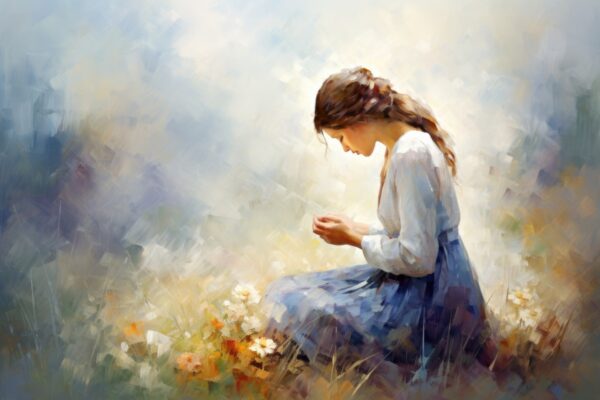In the 1970s, the University of Kansas launched an investigation on their recently developed Integrated Humanities Program.
The administration at the secular university had concerns that the three Catholic professors — Dr. Dennis Quinn, Dr. John Senior and Dr. Frank Nelick — were proselytizing after several students (in some accounts, over 100 in the program’s nine-year lifespan) in the class converted to Catholicism. However, the committee conducting the investigation found no evidence for religious indoctrination within the class.
The main focus of this controversial class? The Great Books.
The professors wanted to instill within their students a sense of wonder and an appreciation of beautiful works of art, particularly of the written word, and in the process brought them to Christ.
This experience of wonder cultivating a deep sense of faith and longing for something more is not unique to this program. It is through literature — good stories that have withstood the test of time — that we can come to know and love the one who is Goodness, Truth and Beauty himself.
Reflecting the Incarnation
Humans are hard-wired for story. For as long as man has walked this earth, we have used stories to help us make sense of the world and understand our place in it.
More importantly, authentic human connection subsists on the sharing of stories. We laugh aloud as someone shares a hilarious moment from vacation. With a tale of heartbreak, we can join someone in the midst of their grief. We even use stories to remember the life of someone who has passed on because stories hold within them some of the essence of the person they are about.
Want more Radiant? Sign up for our weekly newsletter!
Another way of putting it is that stories are shadows of the people and events within them. Because of this, reading beautiful stories allows us to, in some way, encounter God. Anything beautiful contains a shadow of Beauty himself, and so literature gives us a small but very real taste of our eternal destiny — to be united with that beauty forever.
This reflects the truth of the Incarnation. In the Incarnation, divinity takes on human flesh so we can meet him face to face. In literature, beauty takes on human flesh — through characters and narrative — so we can meet the one who is Beauty.
The human face of Christ
This Incarnational aspect of literature allows us as readers to encounter the human face of Christ. Good literature transcends time and remains relevant to us even today because it contains truths that speak to our human experience. We can relate to the characters and emotions in classic stories, even though the circumstances surrounding our lives look completely different.
Although our comfortable 21st century lives look nothing like the challenges faced by vagrant Dust Bowl workers, we can empathize with the Joads in Steinbeck’s “The Grapes of Wrath.”
Not only does reading give you an intimate look into the lives of another, it gives you a more objective perspective on the human condition. Literature brings you face to face with the brokenness of humanity and, ultimately, your need for a savior.
Leading with beauty
Author Andrew Peterson said: “If you want [someone] to know the truth, tell him the truth. If you want [someone] to love the truth, tell him a story.” Our deepest desire is to not merely know God and follow his commandments but to love him. And you can only come to love something you’ve encountered.
Literature invites us to an encounter with God that leads, first and foremost, to an encounter with his beauty. It helps us make sense of truth and desire the good. But more importantly, beauty brings us to love the true and the good. Beauty lifts our eyes heavenward and invites us to adopt a posture of wonder at the mysterious.
Good literature draws us out of ourselves and stirs in our hearts not merely an understanding of our need for God, but rather a deep insatiable longing for him.
Get started
Looking for a book in which you can encounter God’s beauty and goodness? Give one of these titles a read.
- “The Brothers Karamazov” by Fyodor Dostoyevsky
- “East of Eden” by John Steinbeck
- “Brideshead Revisited” by Evelyn Waugh
- “The Power and the Glory” by Graham Greene
- “Frankenstein” by Mary Shelley
- “Till We Have Faces” by C.S Lewis
- “Kristin Lavransdatter” by Sigrid Undset
- “Death Comes for the Archbishop” by Willa Cather
- “The Complete Stories” of Flannery O’Connor
- “The Divine Comedy” by Dante




